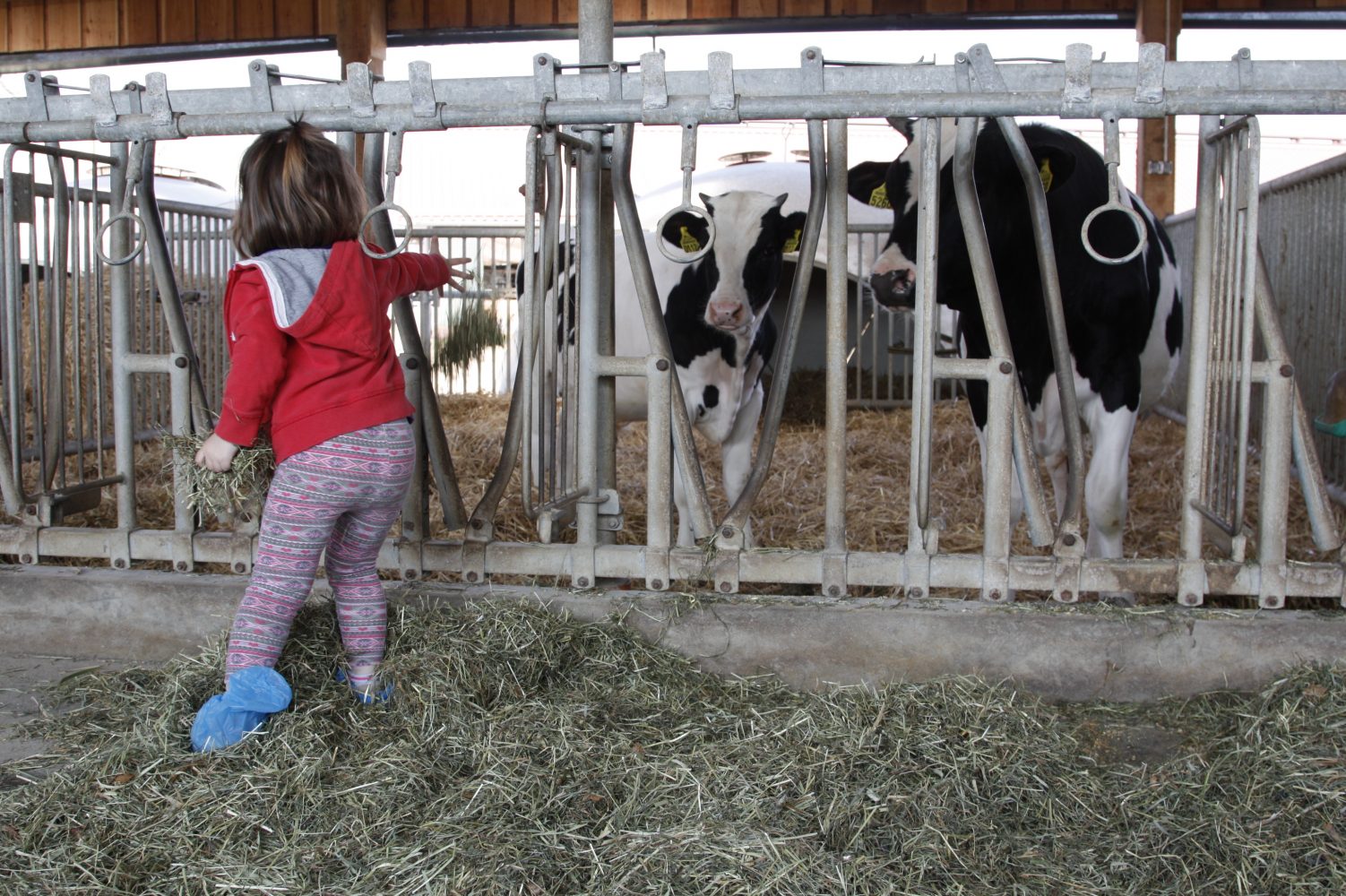Take home messages:
• there is an effect both on the living environment and on the raw milk consumption of the young child
• there is an effect based on the mother’s live and raw milk consumption
• there is an accumulating effect, making it appear that if you do everything (mother / pregnancy, child, stable / animal, raw milk) the immune system develops “normally
Studies have been carried out in many countries of the world with children who have grown up on the farm, with dairy cattle. These children were compared with their peers living in villages, but who did not grow up on the farm. In these studies, it emerges that raw milk must be considered as a single protecting factor against asthma, allergy and atopy. In other words, raw milk in contrast to heated milk (either farm or shop milk) leads to a healthy, normalized immune response in the young child and, therefore, immune related diseases were much less pronounced. Many of these studies have been conducted through the collaboration between Prof. dr. Charlotte Braun-Fahrländer (Basel) and Prof. dr. Erika von Mutius (Munich). They operate mainly in the border region of southern Germany, Switzerland and Austria. The researchers concluded that an important reduction of asthma and allergies was reached after children drink raw, unheated cow’s milk from their first year of life onwards. The protective effect disappears as soon as the children have grown up with heated farm milk (heated to around 80oC).
The questions in relation to these on-farm studies are:
• Can you distinguish between a general farm effect (living on the farm, contact with farm animals) and an effect of the consumption of raw milk?
• How do you know for sure that the farmer’s wife is telling the truth when she says that her child has had raw milk?
• Does it matter whether the pregnant mother already consumes raw milk before the child is born?
• Which other milk factors are supportive for a healthy immunity development?
The ALEX study
One of the first studies (called ALEX study) among farm children was published by Riedler et al. (2001). They investigated both the living and eating habits of the pregnant mother as well as her young child. A distinction was made between the prevalence of asthma, atopy, hay fever and eczema. For the children, a differentiation was made between several factors of influence: ‘being present in the stable’ (lifestyle) versus ‘consumption of raw milk’ (diet). The children who did not meet either of the two criteria served as a control group. To evaluate the living and eating habits of the pregnant mother, it was assessed whether she had drunk raw milk during her pregnancy and / or whether she had been working in the cowshed during pregnancy.
The study showed, that there is an effect both of maternal behavior and of the child (lifestyle). If the child is taken into the stable, the risk for immune related diseases decreases. Regardless of this, the immune problems also decrease if the child has received raw milk (usually already within the first year of life), (diet). However, there is also a sum of mutually enforcing effects, namely in those children who consumed raw milk and also were taken into the stable. Further, there is an additional effect of the mother’s behavior. Mothers who have worked in the cow sheds during pregnancy and drank raw milk during pregnancy give birth to children who developed a healthier immune response and therefore showed less risk of suffering from asthma, allergies and hay fever.




